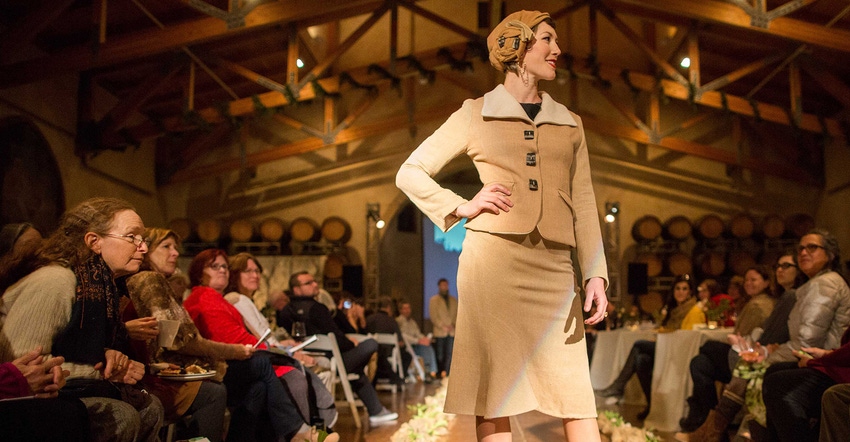Food and fashion damage the planet’s soil, water and atmosphere, but businesses can use regenerative agriculture to improve supply-chain systems
October 5, 2018

The second Regenerative Earth Summit will focus on demonstrating the possibility of restoring our ecosystem while supplying quality raw materials for the food and apparel industries.
The Summit, scheduled for Dec. 5-6 at the University of Colorado, Boulder, is sponsored by At The Epicenter, an education nonprofit dedicated to inspiring businesses to lead global regeneration. For the first time, the Summit will include a Farm to Fashion Show on Dec. 4 in Denver.
“Healthy soil is the key to healthy people and a healthy planet, but here in the United States, topsoil is being lost at a rate 10 times faster than it is being replenished. ‘Chemical agriculture’ is harming the planet, exposing people to toxic chemicals and causing unnecessary suffering to animals that support the system,” said Rose Marcario, president and CEO of Patagonia and a featured Summit speaker.
Marcario and the event’s other speakers will focus on the effects of the food and apparel industries on the environment, as well as the essential need to make carbon sequestration part of both industries’ supply network.
“As grim as this picture looks, the direct benefits of regenerative organic agriculture are extraordinary: It produces better food and higher-quality fibers, rebuilds topsoil, reduces pollution from chemicals and sequesters the carbon that causes climate change—all at the same time,” Marcario said. “As we face environmental catastrophe, this may be the best shot we’ve got at moving the needle on climate change.”
Other speakers include Rebecca Burgess, executive director of Fibershed; Lani Estill, owner of the Bare Ranch; Hammad Atassi, CEO, American Sustainable Business Council; Carol Shu, sustainability manager at The North Face; Eric Thalken, an organic farmer; Keith Paustain, Ph.D., professor at Colorado State University; and Amy Hall, vice president of social consciousness at clothing designer Eileen Fisher.
The Farm to Fashion Show will celebrate the fashion industry’s sustainable roots and regenerative future, featuring brands and designers who create “conscious clothing.”
“Fashion accounts for 10 percent of global carbon emissions, and textile dying is second only to agriculture in its use and contamination of fresh water. We’ve lost touch with the fibers that make up our fashion, and with the ways that the pursuit of personal style directly affects the health of our soil and waterways,” said Sarah Jay, Farm to Fashion Show director. Admission to the fashion show requires a separate ticket.
A Regenerative Farm to Table Dinner, created by Chef Daniel Asher, will take place Dec. 5 at River and Woods Restaurant in Boulder. This event, like the fashion show, requires a separate ticket for admission.
Tickets for the Summit, the fashion show and the dinner are available at Eventbrite. Prices for an all-inclusive pass range from $300 for nonprofits, farmers and ranchers to $500 for corporations. Tickets for just the Summit cost $99 for students; $199 for nonprofits, farmers and ranchers; $299 for entrepreneurs; and $399 for corporations. Admission to the Farm to Fashion Show costs $60, while the Farm to Table Dinner costs $120.
Source: At The Epicenter
You May Also Like


